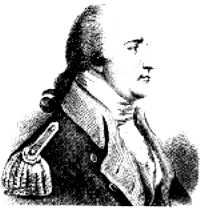
-
Director *
Mikael Salomon
- Writer * * William Mastrosimone
 Dark Eagle: A Story of Benedict Arnold and the American Revolution
|
Dramatis Personae
Aidan Quinn .... Benedict Arnold
Kelsey Grammer .... George Washington
Flora Montgomery .... Peggy Shippen
